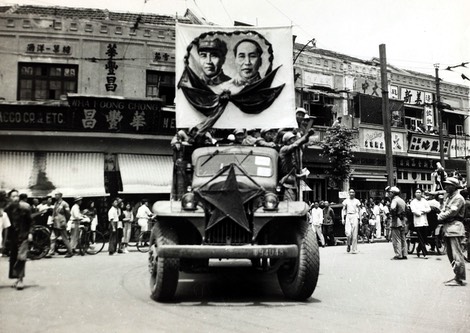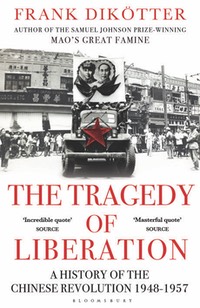The Times, 19 August 2013
At the height of China's Great Terror, provincial leaders were set onerous execution targets to meet. Mao Zedong fiercely denounced those who let him down.
In the ancient city of Kaifeng, the executioners were having problems. Shooting their victims in the head turned out to be too messy, so they aimed instead for the heart. This sometimes failed to kill, which meant they needed a second bullet to silence the screams of agony. As Frank Dikötter, now well into his stride as a meticulous chronicler of China's greatest miseries, notes: "Killing demanded skills that came only with practice."
The Tragedy of Liberation is a tightly-written narrative of the twelve most pivotal years in modern Chinese history; 1945 to 1957 were a near unbearable catalogue of slaughter, ideological betrayal and violence. The book is also a dispassionate study of the way nations can pervert optimism and descend into lunacy by steady increments. Possibly too dispassionate[,] Dikötter does not over-analyse how you move from joyous crowds in Tiananmen Square to a man killing himself because his persecutors were accusing him of murdering eight people when he was a one-year-old baby.
We encounter men numbed from shooting unarmed villagers who continue firing. We have a county official declaring the need to shoot someone at every public meeting. We find leaders casually sending cables reporting that of 40,000 people recently executed, "one third may or may not have deserved death". That drama may now be over, but its stage directions are indelibly written into the lore of the Communist Party.

